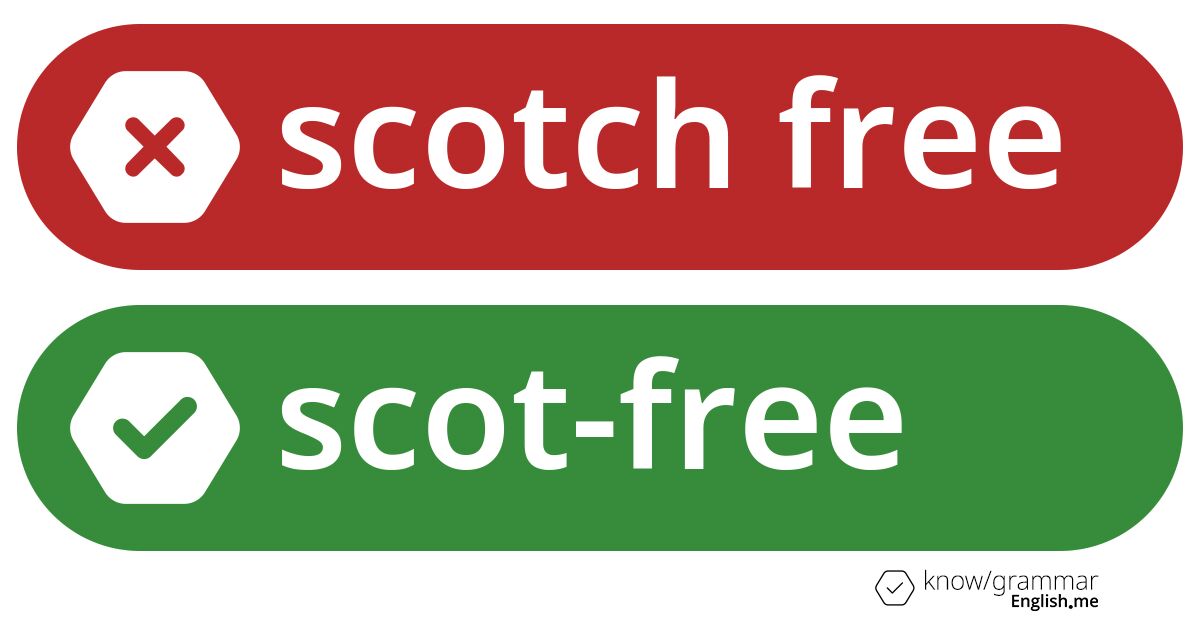The hidden cost of saying "scotch free"
Reviewed and edited by  Lloyd Cooper 04/11/2024, 01:06
Lloyd Cooper 04/11/2024, 01:06
English.me team member
 What kind of error is it?
What kind of error is it?

Common language mistake or malapropism.
 Why do people make this mistake?
Why do people make this mistake?
People often make this error because "scotch" sounds similar to the correct word "scot". Over time, the term "scot-free" has fallen out of common usage, leading to a loss of understanding of its meaning and origins. As a result, some people substitute "scotch," a more familiar term, when trying to use the expression.
 What is correct?
What is correct?
The correct phrase is "scot-free," which means to escape a situation without harm or penalty. "Scot" in this context refers to an old term for a type of tax or payment, so "scot-free" means free of payment or penalty.
 Examples of correct usage
Examples of correct usage
- After the trial, he was let off scot-free.
- She made it through the inspection scot-free.
- Despite the accident, he came out of it scot-free.

 English
English español
español française
française italiano
italiano deutsche
deutsche 日本語
日本語 polski
polski česky
česky svenska
svenska Türkçe
Türkçe Nederlands
Nederlands